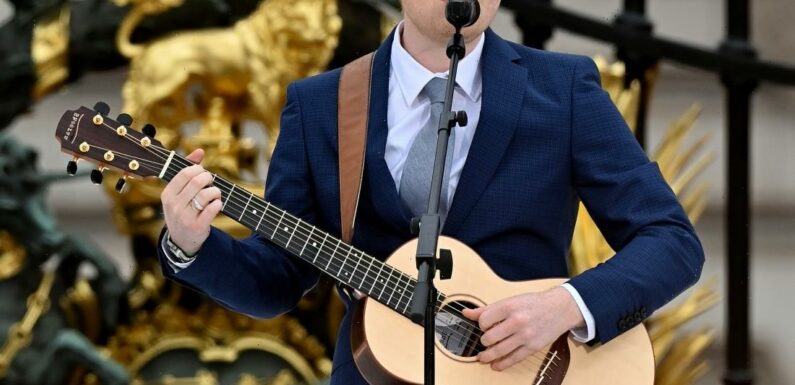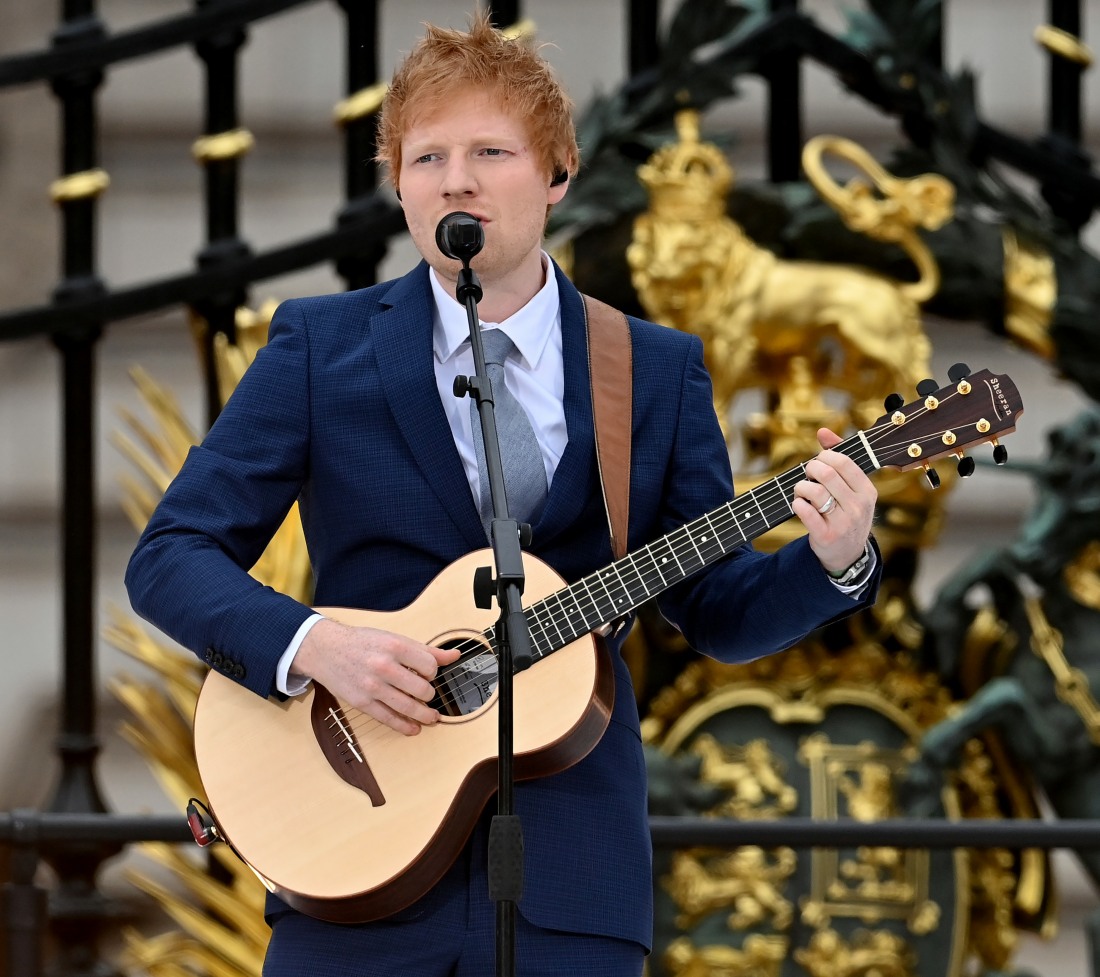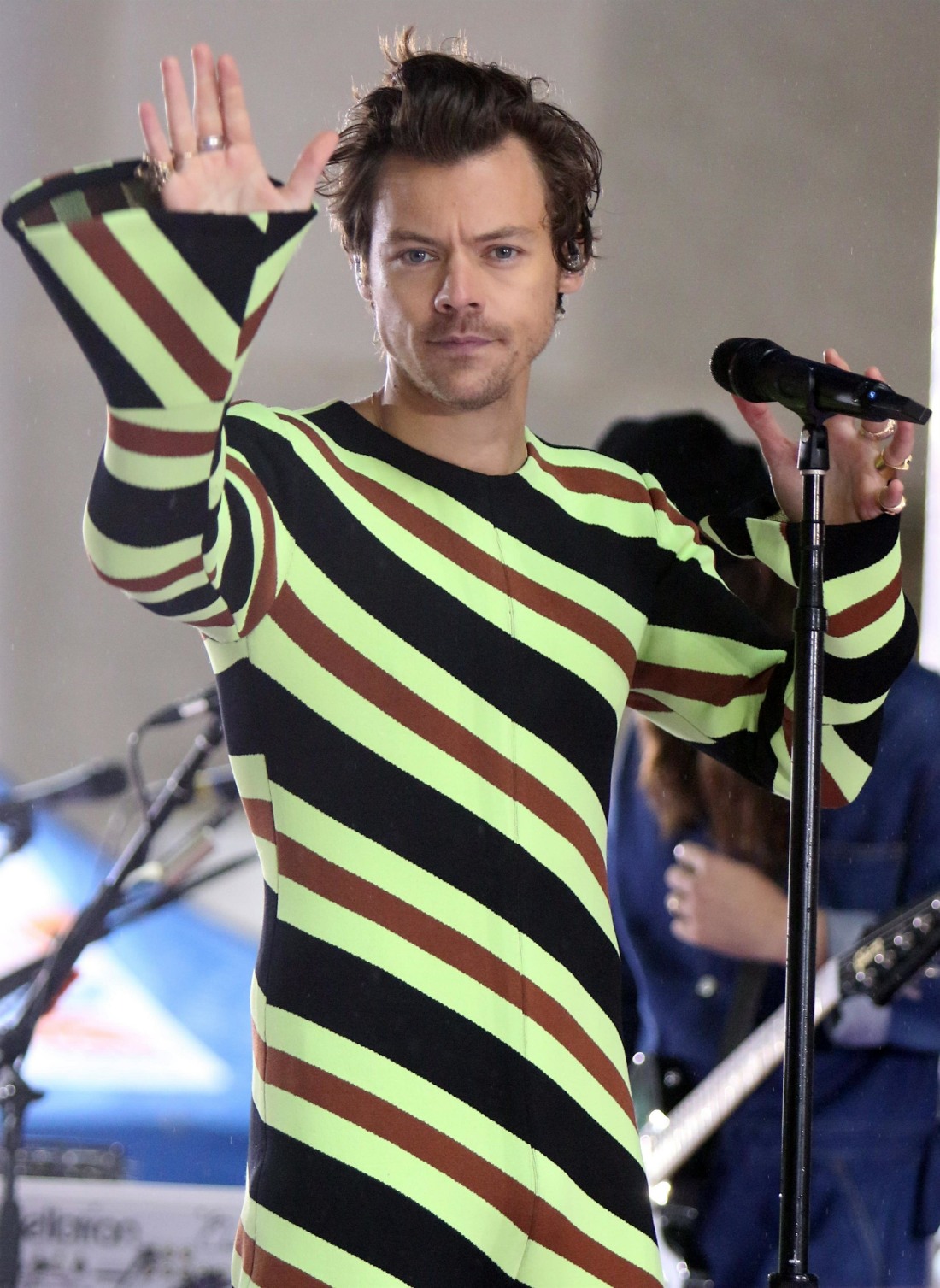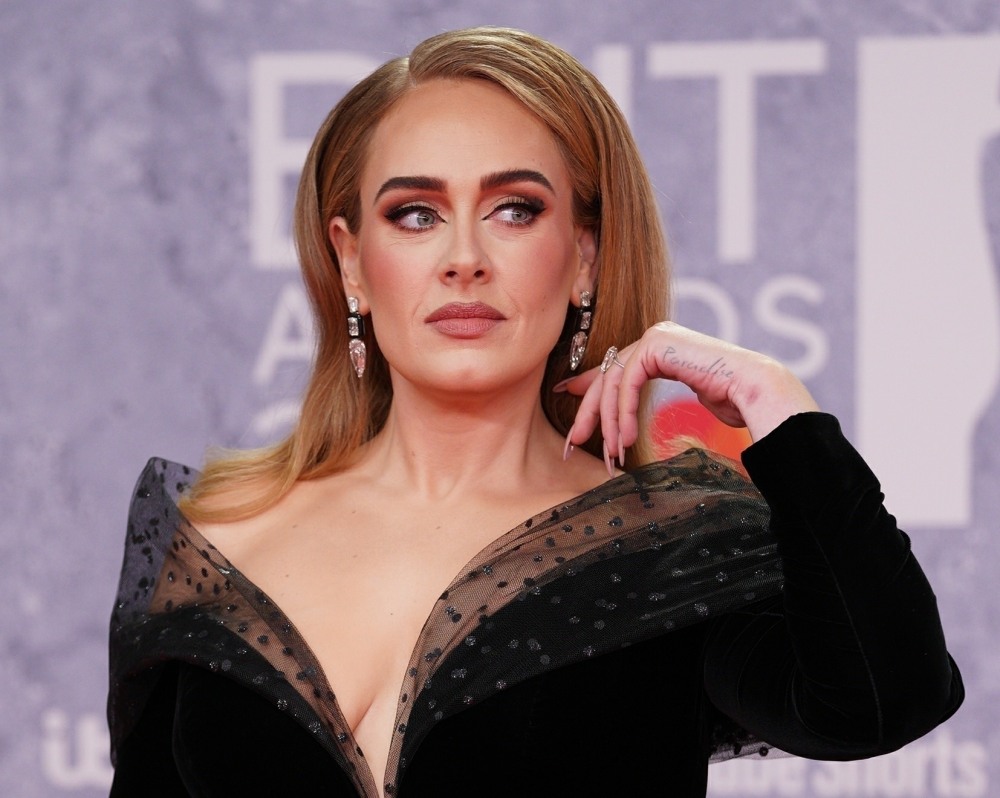
So far, we know for sure that Adele, Elton John, Ed Sheeran, the Spice Girls and Harry Styles have all turned down offers to perform at King Charles’s coronation concert, part of the three-day Chubbly holiday in May. Sheeran – more than anyone else in this group – has performed at some royal or royal-adjacent events in the past, including last year’s Platinum Jubbly. But with Charles sitting on the throne, it looks like the bloom is off the rose. British musical artists are avoiding Charles like the plague, which has got Rolling Stone wondering: “Snubbing the King: Why Don’t Big Stars Want to Perform at Charles’ Coronation?” Some highlights:
No more cheekiness: “The Nineties were so different in British pop culture. It was New Labour, everyone was playful and being a bit cheeky,” explains Michael Cragg, author of Reach For The Stars, a book about Nineties and ‘00s British pop. But, Cragg says, “that cheekiness absolutely isn’t here anymore. Now we really want to know who people are and the version of the Royal family that we’ve learned of recently through Prince Harry’s book and how the Prince Andrew scandal was handled: the reality is awful. You could not be the biggest band in the world now and walk up and plant a kiss on them and it still work.”
Artists are worried about the backlash they would get: “The royal family has faced a number of PR disasters in recent times, and anyone performing at the show would have to consider whether there would be a backlash from appearing amongst their fans,” says Simon Jones, PR to Little Mix, Niall Horan, and Louis Tomlinson.
It’s straight-forward for many artists though: Kingsley Hall of political band Benefits, whose 2022 anti-monarchy single “Flag” was number one on the Official UK vinyl the week of the Queen’s Platinum Jubilee, explains of the British cultural temperature, “We’ve had so much exposure and negative exposure of the Royal family – jubilees, weddings, fallings out, accusations of racism, notable deaths, someone being accused of being a sexual predator – in what I would classify as a short space of time. People are sick of it and probably won’t be involved for that reason.”
Royalism is a dirty idea. Meg, head of a leading British music PR company, notes that both Styles and Adele are at points in their careers where they need to define themselves beyond a successful decade in music. “For them right now, storytelling is really important,” says Meg, whose real/full name has been withheld by request. “These big symbolic associations carry a lot of weight and literally go down in history books in bold and underlined. I can understand why there’d be a big PR discussion around artists doing it or not.”
Charles is not the country’s grandfather. “I don’t know what there is to gain for artists by associating with him,” says Meg. “With the Queen, she was fab and glamorous to some people. Charles doesn’t add anything — there’s not a legacy of his that anyone would want to align with. It’s televised, so a lot of people will hear your songs, sure, but in terms of long-term PR strategy, I don’t know if performing would add positively to an artist’s narrative unless they were staunchly pro the monarchy.”
The cost of living crisis in the UK: Ellie (whose real/full name has been withheld by request), founder of a British pop music PR company, says, “Strip back the gold and red cloak, and you have a country where parents are choosing between feeding their kids or keeping them warm. How much money is the coronation costing the taxpayer? It feels like a political statement to play.”
Adele is for the working class, not the royals: As Adele superfan Grace Martha from London notes, Adele is a proud champion of being working class from Tottenham, one of the most ethnically diverse areas in Britain. “The pomp and money this coronation is costing doesn’t represent her values at all,” says Martha. “This issue is so specific to our culture; Americans might think, ‘Oh, she’s from London and a cockney, why wouldn’t she do it?’ But they don’t understand the nuances of different areas, cultures, and identities here. She’s for the ‘everyday person,’ and the everyday younger person in London doesn’t rate the royal family anymore.”
British colonialism is front & center: That is behind the struggle to secure A-List British acts, says Hak Baker, a musician from London: “Any situation where I’d bow to an openly racist colonial imperial system that refuses to apologise for its past and eradication of my people’s history I’d rather avoid with a barge pole. We are more aware of the past now. They are not exempt from recognition. I think they’re going to have a hard time.” Han Mee of Manchester band Hot Milk agrees emphatically, calling it an “outdated institution” that does not represent modern Britain. “Leave it in the past, it’s as old, aged, and expensive as the whiskey that props it up but without the strength and merriment,” she says. “I liked Liz, but it should have died with her – the coronation is a kick in the teeth when this country has never been more of a s–t show.”
[From Rolling Stone]
The final point of the article is basically: King Charles and the royal institution are clout-chasing these artists, which means that the Windsors need Ed Sheeran more than he needs them. Which is true – it doesn’t hurt Adele’s career or Elton John’s career to turn down the Chubbly concert. Sure, they might have gotten a sales boost (the concert will be televised), but at what longterm cost to their careers? The thing I keep thinking about is that the Chubbly organizers went to artists who are world-wide stars, not “popular solely in Britain.” Adele, Ed, Elton, they tour arenas around the world, they see how other countries operate, and in some cases, they live in other countries. That gives them a different perspective on the royal sh-tshow and the politics of the monarchy. Anyway, I guess Charles will have to hire Kate for a Chubbly piano recital.
Photos courtesy of Avalon Red, Backgird, Instar.
Source: Read Full Article


